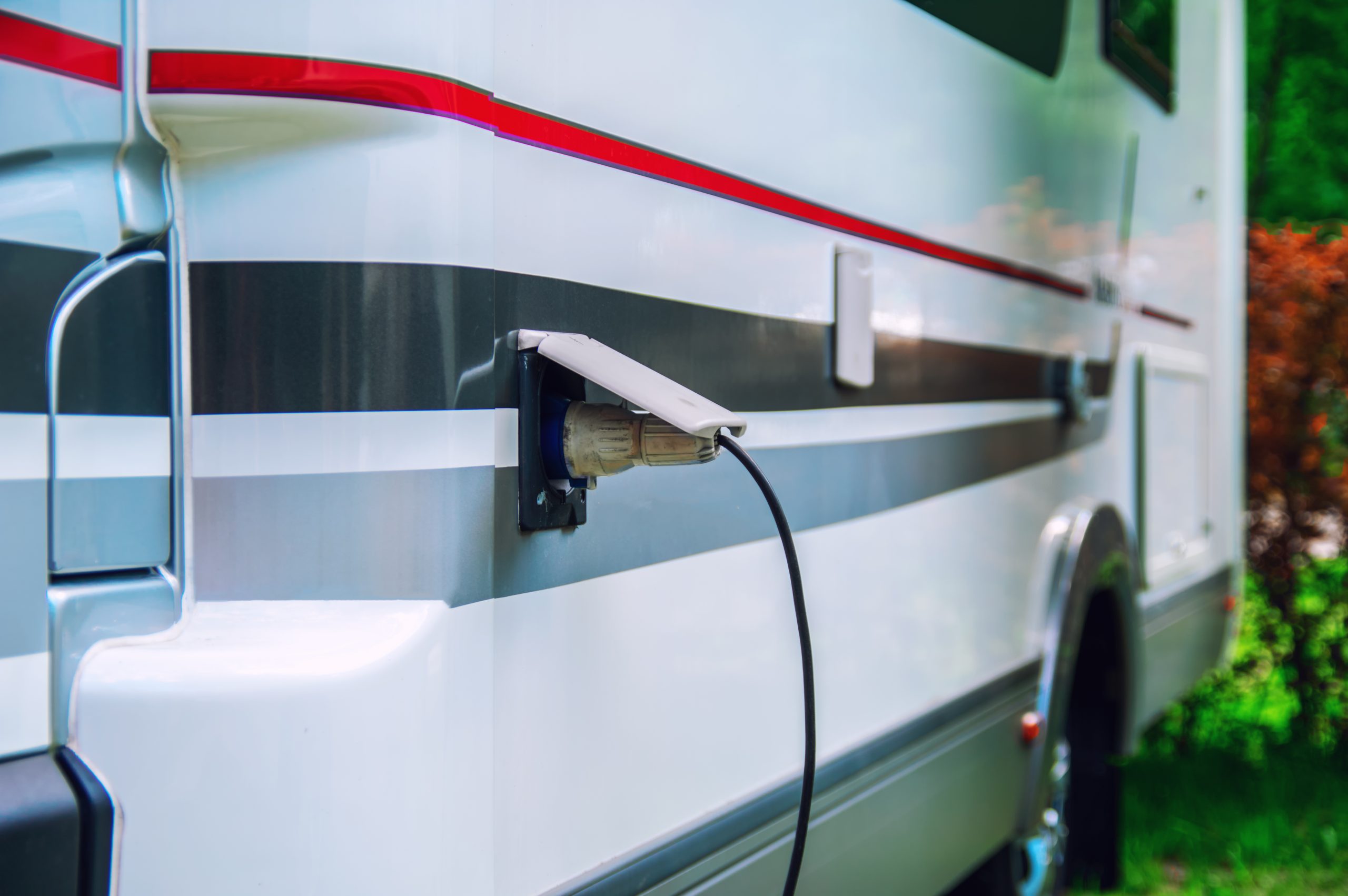Electric vehicle trends are accelerating quickly—and not just for cars. As EV adoption hits record highs in the U.S., many RV owners are asking: Will electric technology catch up to life on the road?
From shifting tax incentives to nationwide charging infrastructure and pricing changes, the EV market is evolving fast. But the landscape looks very different depending on whether you’re shopping for a daily commuter or your next adventure vehicle.
Here’s what you need to know about electric vehicle trends in 2025—and how they impact electric cars and RVs differently.
Federal Tax Credits: Cars Still Win
If you’re considering an electric car in 2025, you may still qualify for up to $7,500 in federal tax credits. To be eligible:
- The vehicle must be assembled in North America
- The MSRP must fall under $80,000 for SUVs and $55,000 for sedans
- A portion of the battery must be manufactured or sourced in the U.S.
A big change this year is that you can now apply the credit instantly at the dealership as a discount—no waiting until tax season.
For RVs, however, these credits generally do not apply. Electric RVs, when available, often exceed federal price caps or fall into vehicle classifications that don’t qualify for consumer credits.
What this means for you:
If you’re buying an EV for personal transportation, double-check the eligibility criteria before you buy. If you’re eyeing an e-RV, leasing may be the better financial move for now—until more options hit the market.
Charging Infrastructure: Great for Cars, Not Quite There for RVs
Tesla’s North American Charging Standard (NACS) is becoming the new industry standard, and more automakers are adapting their vehicles to be compatible with Tesla’s powerful Supercharger network. By the end of 2025, most new EVs will have access to these fast chargers, making long-distance electric travel easier than ever before.
Charging infrastructure in general is expanding. According to the U.S. Joint Office of Energy and Transportation, the number of public chargers has doubled since 2020, thanks in part to the NEVI program under the Bipartisan Infrastructure Law.
However, electric RVs need larger battery packs, and most public chargers aren’t designed for their size or power demands. Even Tesla’s network isn’t yet suited for high-capacity RVs.
What this means for you:
Electric vehicle trends are clearly favoring cars when it comes to accessibility and ease of charging. If you’re considering an e-RV, be prepared for limited charging options and longer charging times—especially on remote or rural routes.
Pricing and Availability: Cars Catching Up, RVs Still Behind
One of the most encouraging electric vehicle trends for consumers is falling EV prices. In 2020, EVs cost 42% more than traditional gas vehicles. In 2024, the gap dropped to 16%. And now, in 2025, the average new EV costs only about 12% more than the industry average.
This downward trend is expected to continue as battery tech improves and production scales up. That means more affordable EVs—and more used EVs—will be on the market in the coming months.
For electric RVs, though, pricing remains a barrier. Most models are still in early development or priced as high-end luxury vehicles, with limited production and availability.
What this means for you:
Buying an electric vehicle for personal use may now be within reach, especially if you’re open to used models. For RVs, consider watching the market over the next few years as more viable, affordable electric options emerge.
Final Thoughts on Electric Vehicle Trends
The electric vehicle trends of 2025 clearly favor daily-use electric cars, with tax credits, improved infrastructure, and more affordable pricing all working in their favor. Electric RVs, while promising in concept, still lag in practicality due to limited charging support, high costs, and early-stage production.
But no matter what you drive—electric or gas, compact car or Class C motorhome—having the right protection matters.Contact Happy Camper Insurance today to explore RV and vehicle coverage that keeps you safe and ready for the road ahead, no matter where electric vehicle trends take you.


